Celebrating ‘Thrivership’

Posted in Lombardi Stories | Tagged immunotherapy, kidney cancer, melanoma, survivorship
(September 20, 2024) — Survivors of melanoma and kidney cancer gathered to celebrate “thrivership” during a luncheon that might not have been possible as recently as 10 years ago as people with these types of cancer are living longer and experiencing cures.
Together, the two immune-related cancers have a sizable impact: More than 100,000 people in the U.S. are diagnosed with melanoma each year, and more than 80,000 are told they have kidney cancer. However, substantial changes in treatment over the past decade, primarily because of immunotherapy, have led to a steady decline in the overall death rate for both diseases.
Michael Atkins, MD, deputy director of Georgetown’s Lombardi Comprehensive Cancer Center, led some of the groundbreaking clinical trials with immunotherapy that began in the early 2000s and are now FDA approved. He welcomed his patients and many others at the Thrivership Luncheon on Sept. 18 at the Annapolis Yacht Club, hosted by Bernard and Mary Chris Jammet.
“This is a room full of people who have amazing stories of how they got to where they are, and they’re all thriving because of the treatment that they received,” Atkins said. “The journey of going through treatment for cancer is a relatively lonely journey. You do it with yourself and your family, maybe some close friends, but now you’re in a room with a lot of people who’ve been through essentially the same journey and you realize you’re not alone.”
Atkins explained that fellow attendees at the luncheon were either melanoma or kidney cancer survivors, and that the research in melanoma had informed the treatment of other cancers including kidney cancer. Both Atkins and Geoffrey Gibney, MD, treat both diseases because of their immunologic relationship.
“I think this is really setting the bar very high for us and everyone around us treating other cancers,” Gibney said. “It shows that if we work hard in drug development, clinical research, things do change. And I think that’s why we’re all here today.”
Scenes from the 2024 Thrivership Luncheon
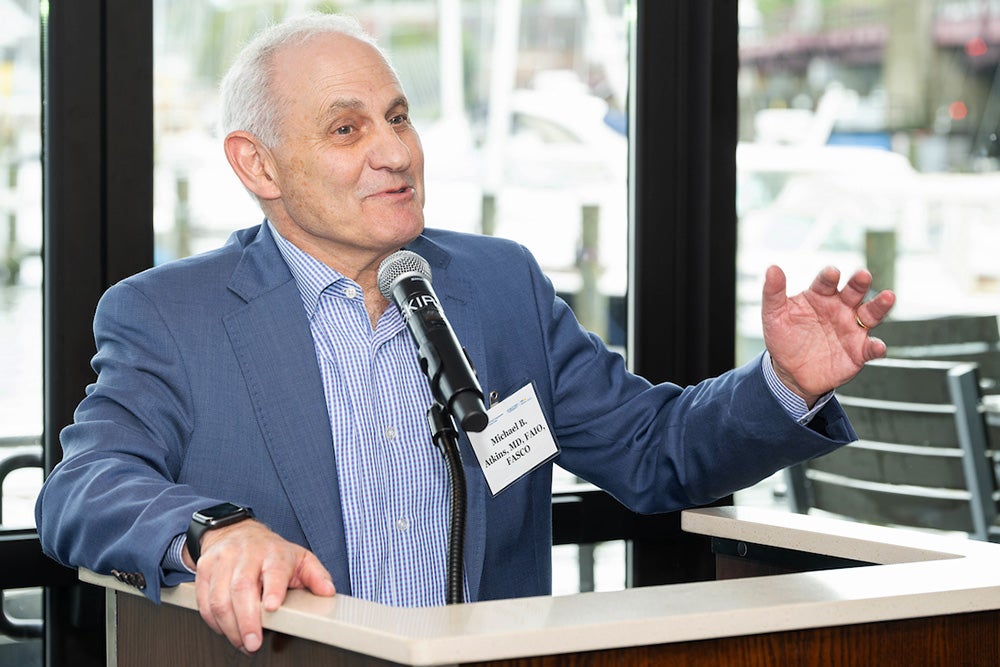
Dr. Atkins welcomed Thrivership Luncheon attendees. 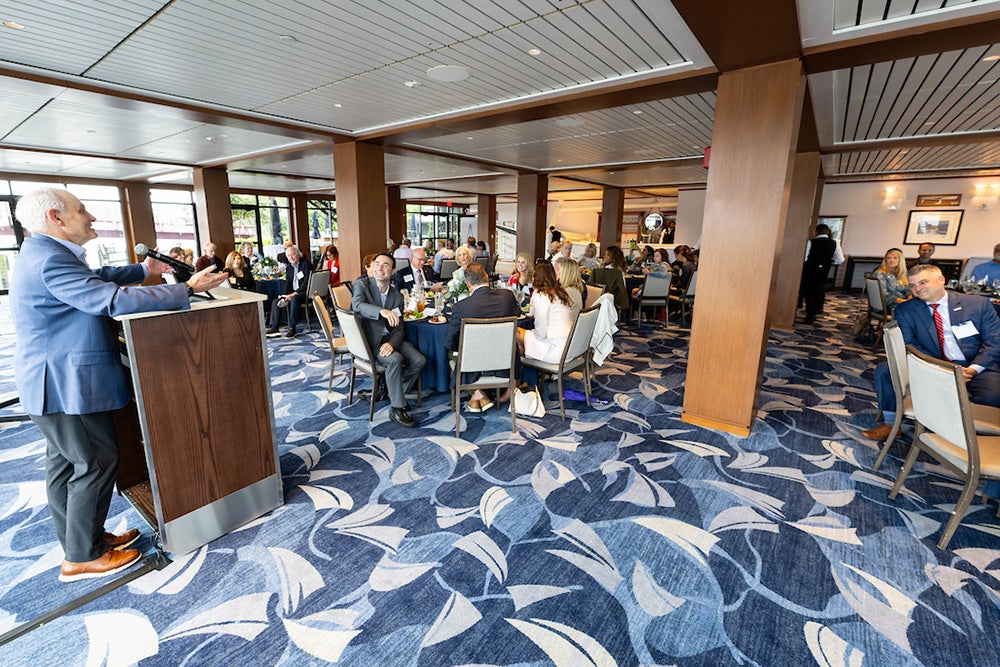
“This is a room full of people who have amazing stories of how they got to where they are, and they’re all thriving because of the treatment that they received,” Dr. Atkins said. 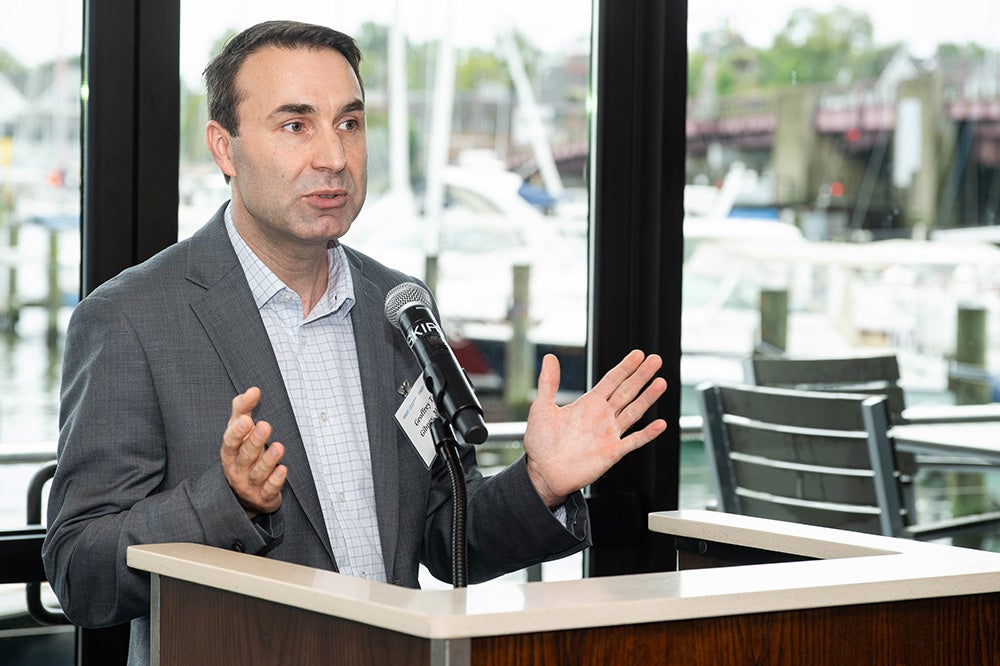
“If we work hard in drug development, clinical research, things do change,” said Dr. Gibney. 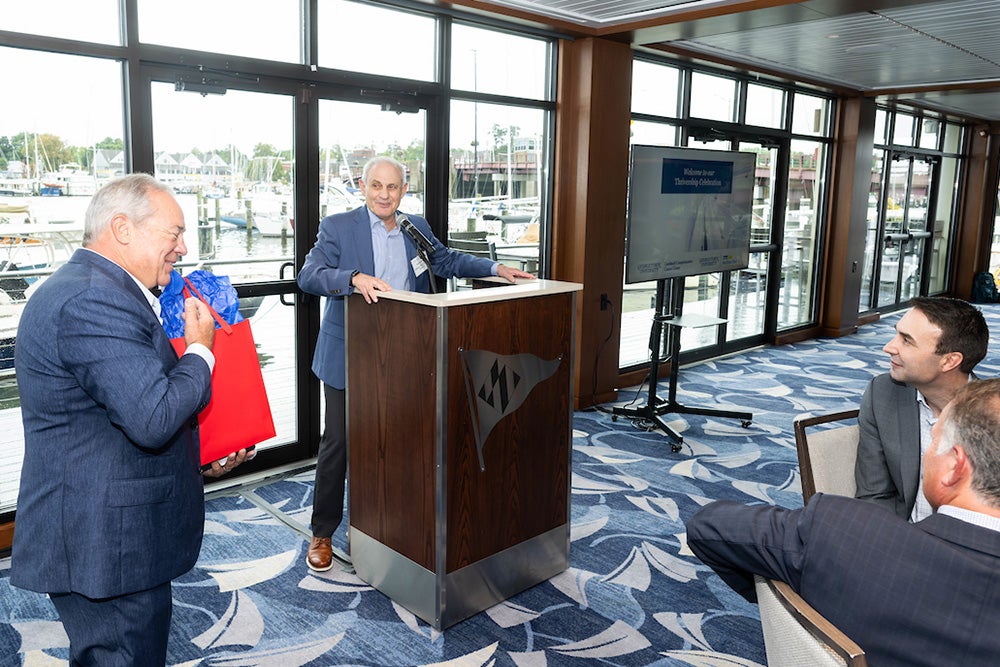
Dr. Atkins presented Bernard Jammet with a token of gratitude for hosting the event. 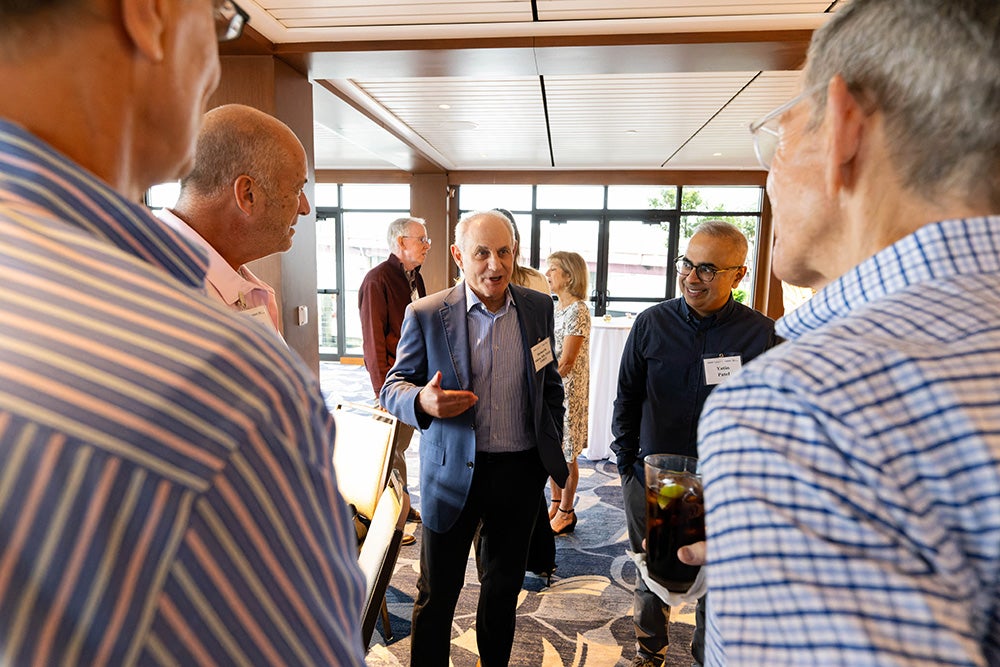
Dr. Atkins visited with attendees at the Sept. 18 event. 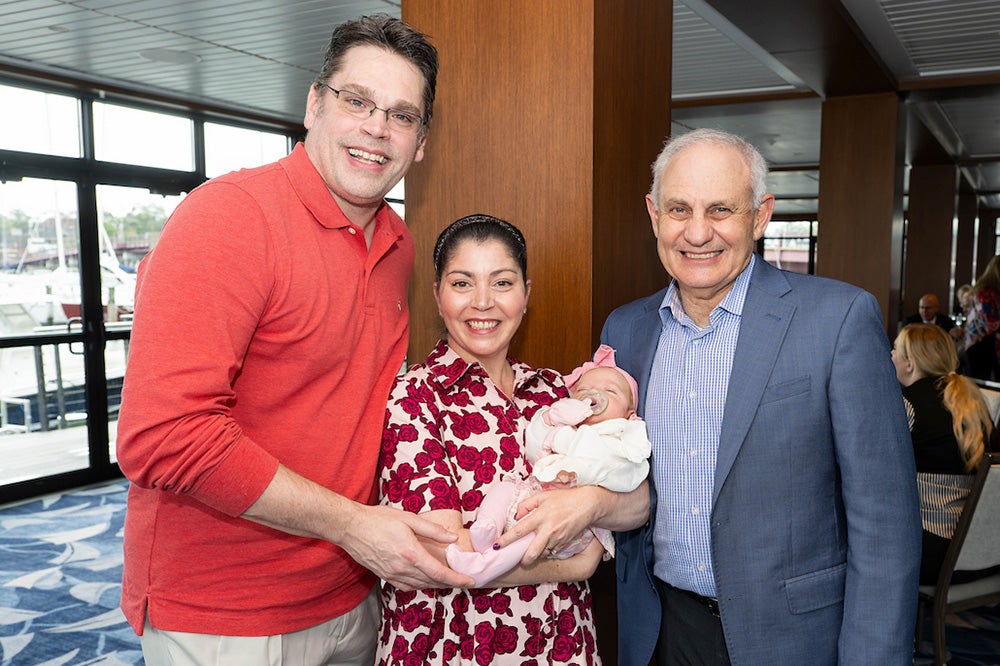
Shaun and Emily Micale Moe shared the joy of the newest addition to their family with Dr. Atkins, who treated Emily for stage 4 melanoma.
